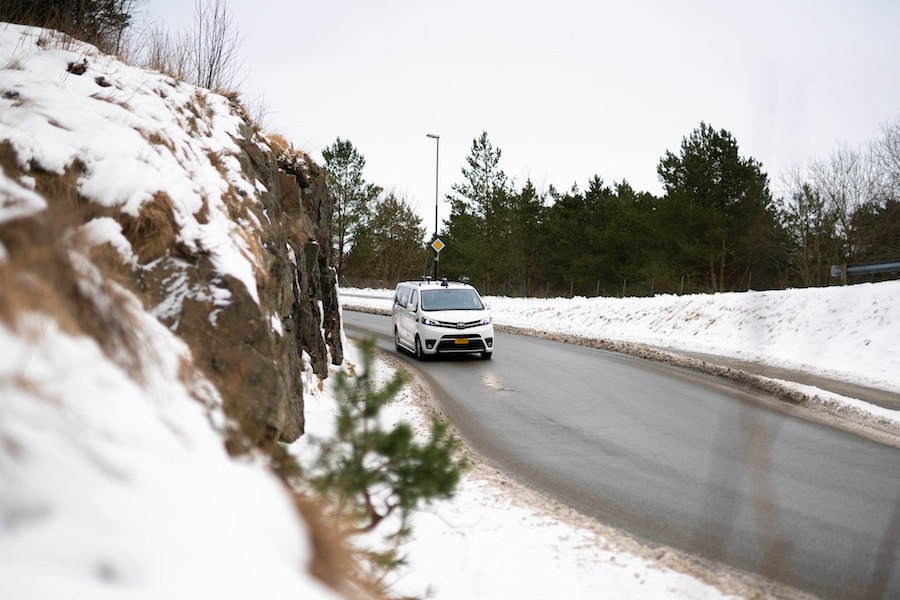
A trio of Nordic companies aims to deliver the world’s first long-term self-driving transport service north of the Arctic circle, the partnership announced Sept. 21.
In February 2022, two autonomous Toyota Proaces—the Japanese automaker’s first battery-electric van—will hit the roads of the city of Bodø in northern Norway. February is the coldest month of the year in the Scandinavian city, with changing winds, an average of 11 days of snow, seven days of rain, and 6.5 hours of daylight.
“It is the first time in the world that a pilot project of autonomous technology is carried out on this scale in an Arctic climate,” Siri Vasshaug, project manager for Smarter Transport Bodø at Norway’s Nordland county, said in a statement. “Bodø is known for having three seasons in one day. If this works in Bodø, it works everywhere.”
Norway’s Mobility Forus will operate the vehicles, using Finnish tech company Sensible 4’s all-weather self-driving software and Danish Holo’s data and supervision platform. Mobility Forus was the first company to operate autonomous shuttles on Norwegian roads in 2018. Sensible 4 aims in 2022 to launch the world’s first commercial all-weather software product for driverless last-mile shuttles with Society of Automotive Engineers (SAE) Level 4 autonomy—that is, able to act without any human intervention in the vast majority of situations. Holo operates and implements autonomous projects across Europe, with more than 80,000 kilometers driven autonomously on public roads.
The service will drive on public roads in mixed traffic along a 3.6-kilometer-long route in Bodø’s center, supporting local public transportation.
“Self-driving fleet operation on public streets in urban areas is challenging for any autonomous technology,” Harri Santamala, CEO of Sensible 4, said in a statement. “Doing it in a city located above the Arctic Circle is even more challenging.”
Passengers can get on and off the autonomous shuttles from dedicated bus stops at the harbor, city center, parks, and the regional hospital, where there is currently a gap in the overall service.
“The citizens of Bodø have long requested service to the public hospital,” Linn Terese Lohne Marken, CEO of Mobility Forus, said in a statement. “We believe that the scheduled route will provide an attractive and practical alternative to private driving for the population in general.”
Parking around the city center and in the vicinity of the hospital is also an issue for the city.
“The goal is to provide good, flexible transport solutions to the inhabitants of the region,” Vasshaug said in a statement. “This initiative will contribute to solving a traffic challenge in Bodø at the same time as it reduces greenhouse gas emissions.”

